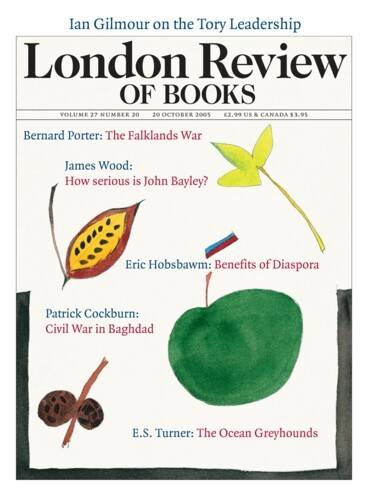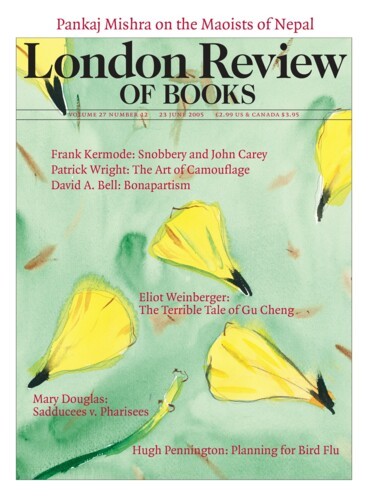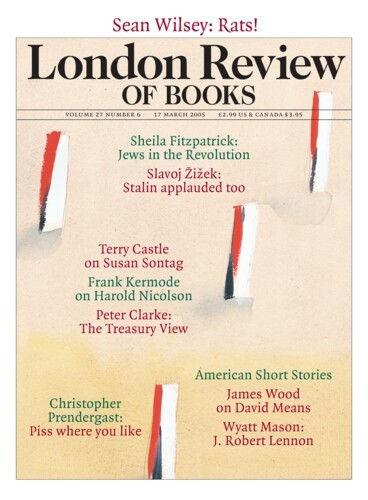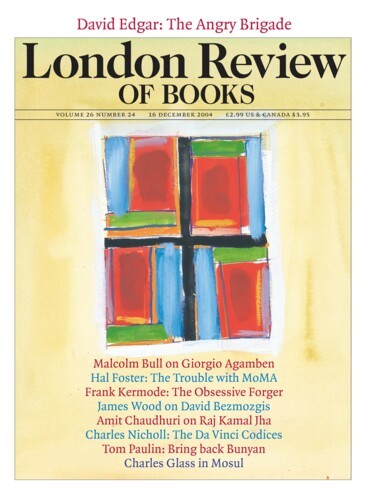At the tent flap sin crouches: The Fleshpots of Egypt
James Wood, 23 February 2006
In the beginning was not the word, or the deed, but the face. ‘Darkness was upon the face of the deep,’ runs the King James Version in the second verse of the opening of Genesis. ‘And the Spirit of God moved upon the face of the waters. And God said, Let there be light: and there was light.’ Two uses of ‘face’ in one verse, and a third implied face, surely: God’s own, hovering over the face of his still uncreated world. The Almighty, looking into the face of his waters, might well be expected to see his face reflected: it is profoundly his world, still uncontaminated by rebellious man.





